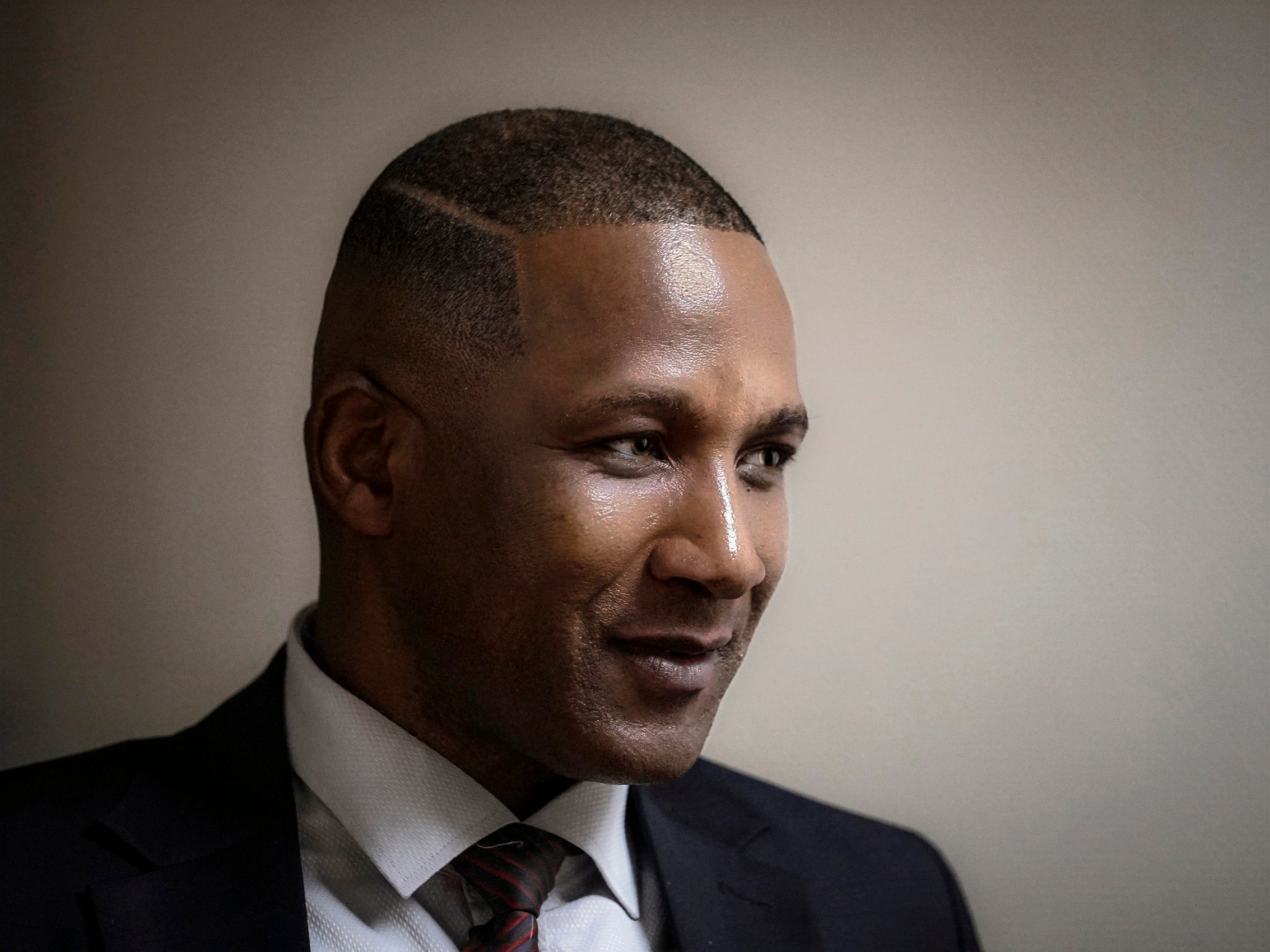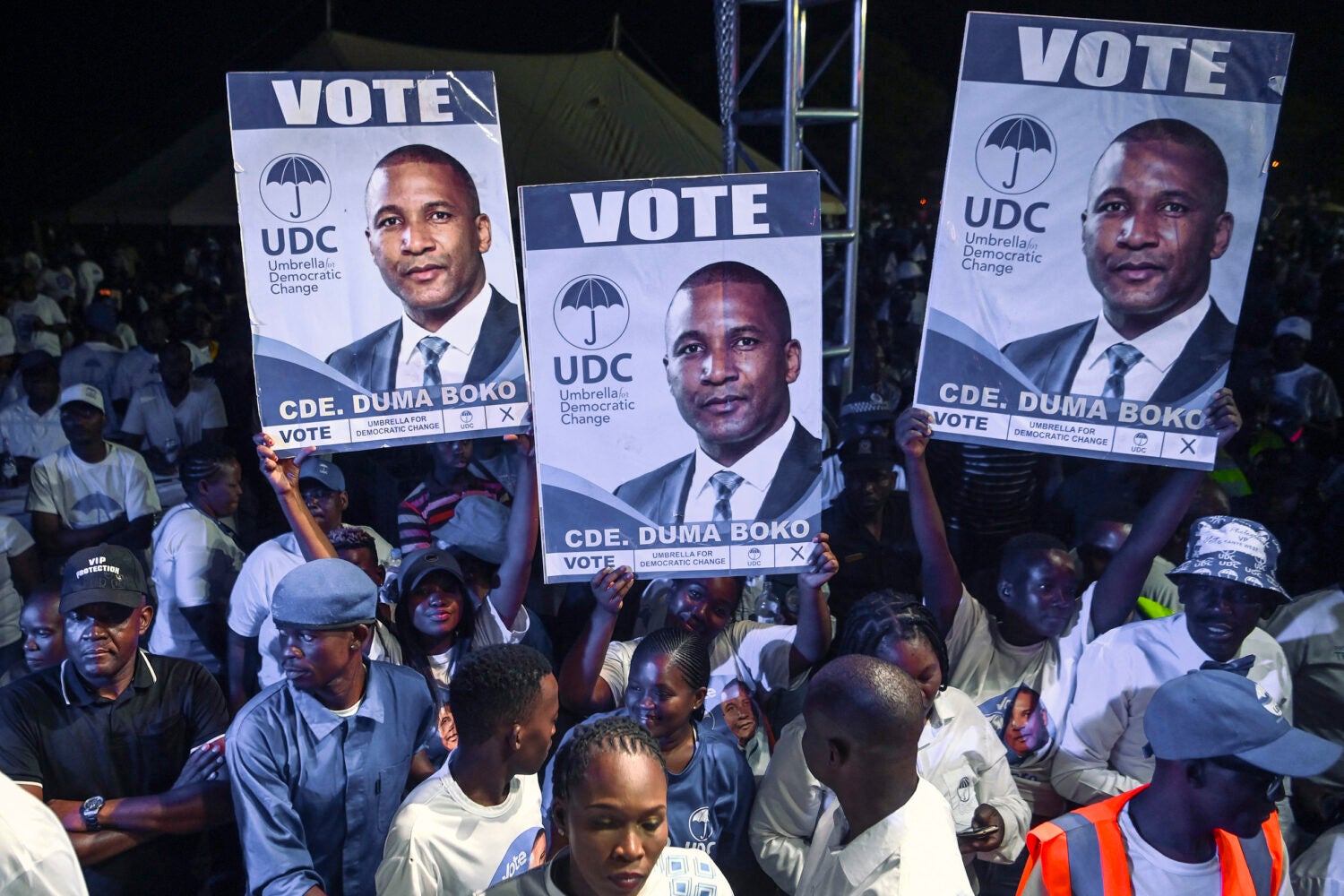Duma Boko LL.M. ’95 was sworn in as president of Botswana in November after winning an election against incumbent President Mokgweetsi Masisi, whose Botswana Democratic Party had ruled the country since it gained independence from Britain in 1966.
“One of the reasons [Boko’s] election is seen as very important is that it ended single-party rule,” said Uché Ewelukwa LL.M. ’93 S.J.D. ’03, a professor at the University of Arkansas School of Law who teaches in the fields of international law and intellectual property. “He was at the forefront of people fighting against the dominance of a single party.”

Boko, the leader of the country’s opposition coalition, Umbrella for Democratic Change, or UDC, since 2012, won on his third attempt for the presidency of the southern African nation. As president, Boko faces challenges in a country of about 2.5 million people, which has gained wealth from diamond mining but has struggled economically because of a slump in the global diamond trade.
During the campaign, he accused the ruling party of being “connected in a grand scheme of self-enrichment.” He pledged to create a competitive business climate, increase the minimum wage, lower the country’s high unemployment rate, strengthen its infrastructure, and bolster sectors beyond the diamond industry such as agriculture and tourism.
“This campaign was an opportunity for me personally, and for the UDC as an organization, to demonstrate consistency, to demonstrate firm commitment to the issues that it had raised and the solutions it had proposed, and to take that message to the people in a manner that was easy to understand and relatable,” he said in an interview with the BBC after his victory.
Ewelukwa noted that, while Botswana has been politically stable, the country’s commitment to upholding human rights has declined. Boko’s proposals during the campaign to improve standards of living and end corruption resonated with the voters, she said: “He spoke the language of economic and social rights.”
Born in 1969 in the small Botswana town of Mahalapye, Boko studied law at the University of Botswana prior to earning his LL.M. at Harvard Law. He taught constitutional law at the University of Botswana and ran his own law firm, which focused on public interest litigation and consultancy work on human rights issues. In addition, the firm handled labor, corporate, and intellectual property law, and criminal defense.
“He brings to the presidency a visionary social democratic agenda.”
As a human rights lawyer, he advocated for the rights of the Basarwa, the Indigenous people of Botswana. He served on the board of directors of the Botswana Network on Ethics, Law and HIV/AIDS. His wife, Kaone Boko, is also an attorney.
In 2010, Boko became the leader of the Botswana National Front party, which later joined with other parties to form the Umbrella for Democratic Change. The coalition won enough parliamentary seats in the latest election to appoint Boko president after falling short in 2014 and 2019.
James Thuo Gathii S.J.D. ’99, a professor of international law at Loyola University Chicago School of Law, took classes with Boko when they were students at Harvard Law and has kept in touch with him. He called the new president “a brilliant lawyer, academic, and one of the most promising statesmen of his generation in Africa” and credited him with building a formidable coalition against a dominant party.
“He brings to the presidency a visionary social democratic agenda that he has developed over more than a decade and that has a broad mandate, given his convincing victory,” Gathii wrote in an email. “He has an impeccable understanding of Botswana’s place in southern Africa but also in Africa and indeed in the global context. All these attributes set him up very well for a great tenure as president.
